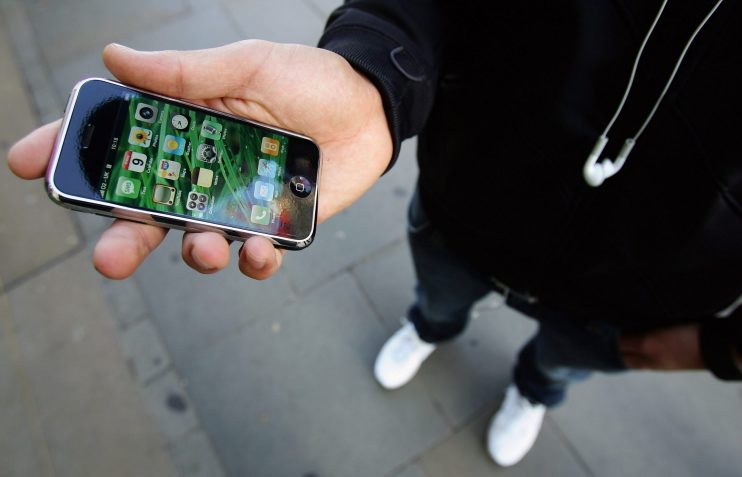They’re not just phones, they hold our entire lives together

This month, we are marking the eighteenth year of O2.
The world of 2002 feels like a very long time ago — and over the past 18 years, the mobile industry has been at the heart of some seismic changes in the way we live our lives.
An eighteenth birthday is an important milestone, sparking the desire to both reflect and look forward. Today, the mobile phone is the most popular device in connecting to the internet — for a quarter of all adults, it remains their only way to do so.
People use their mobiles to shop, bank, email, navigate journeys, or watch their favourite entertainment series online.
Mobile phones are our alarm clocks, our cameras, and an extension of our office — and let’s not forget their original purpose, to stay connected with friends and family. Since 2010, O2 as a network has carried a staggering two and a half billion gigabytes of data, and there is no sign of any slowing in demand.
So what does the future look like? Recent analysis shows that in today’s digital world, customers expect companies to not just provide them with a standardised service, but to proactively understand them and be one step ahead of managing their expectations. Our lives are increasingly busy, so the mobile operators that can tap into this fundamental insight will be the ones to prosper.
For the mobile industry in the 2020s this will mean three things.
First, we need to recognise, acknowledge and reward customer loyalty. This is a theme that the regulator Ofcom is working on at the moment — and the mobile industry should support this, because there is a sound commercial case in the long term. My own company, for example, took the decision seven years ago to reduce a customer’s bill automatically once they paid off their handset.
Second, the rural-urban divide for mobile coverage must end. It has become increasingly inexplicable to customers that they cannot access a reliable mobile service in every part of the UK.
In a demonstration of sensible, customer-focused practice, mobile companies came together last year to commit to a “Shared Rural Network”, where we share our masts to provide coverage in even the remotest parts of the country. It got the backing of the government in October, and it is critical that we keep the momentum, expanding our networks further over the coming years.
Third, we must support businesses in the UK to allow them to access the enormous benefit that technology can bring. There’s been a lot of talk about 5G, but its true potential will only be realised when external innovators use it for further technological advances that we can’t even begin to imagine yet.
From utilities to health, from transport to entertainment, 5G will transform not just businesses, but entire sectors, making services faster, more efficient, and creating new uses for network altogether.
At O2, we’re inviting businesses big and small to explore 5G with us. We’re already working with the NHS on a 5G smart ambulance to save lives, and with Worcester Bosch on the UK’s first 5G factory.
We’ve seen phenomenal transformation over the past 18 years, and with the pace of technological change afoot in the mobile industry only set to increase, there is one fundamental truth that will stay the same: those who stay truest to the maxim of putting the customer first will be the ones who prosper.
Main image credit: Getty